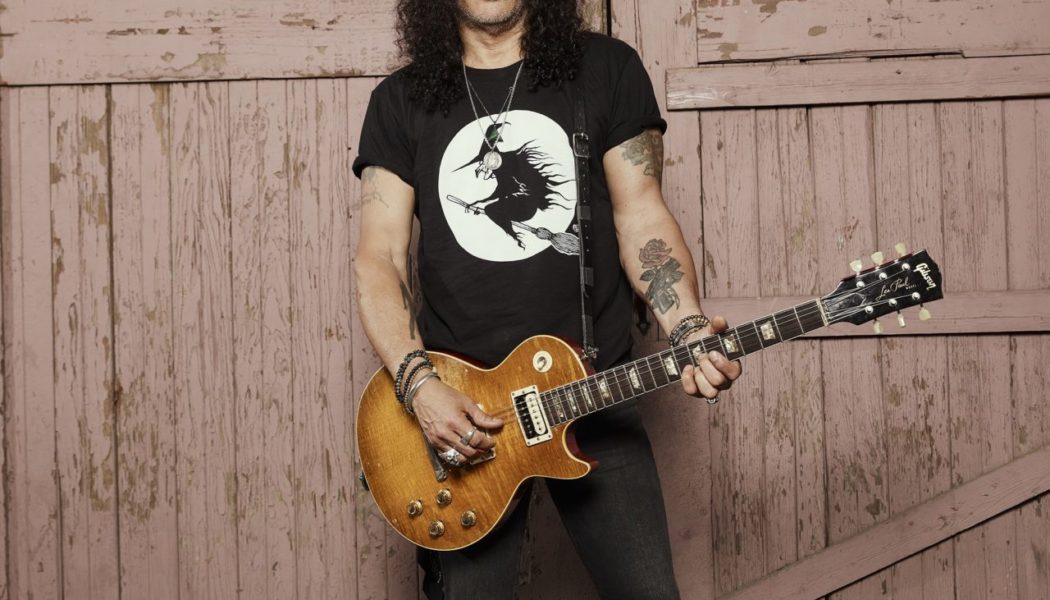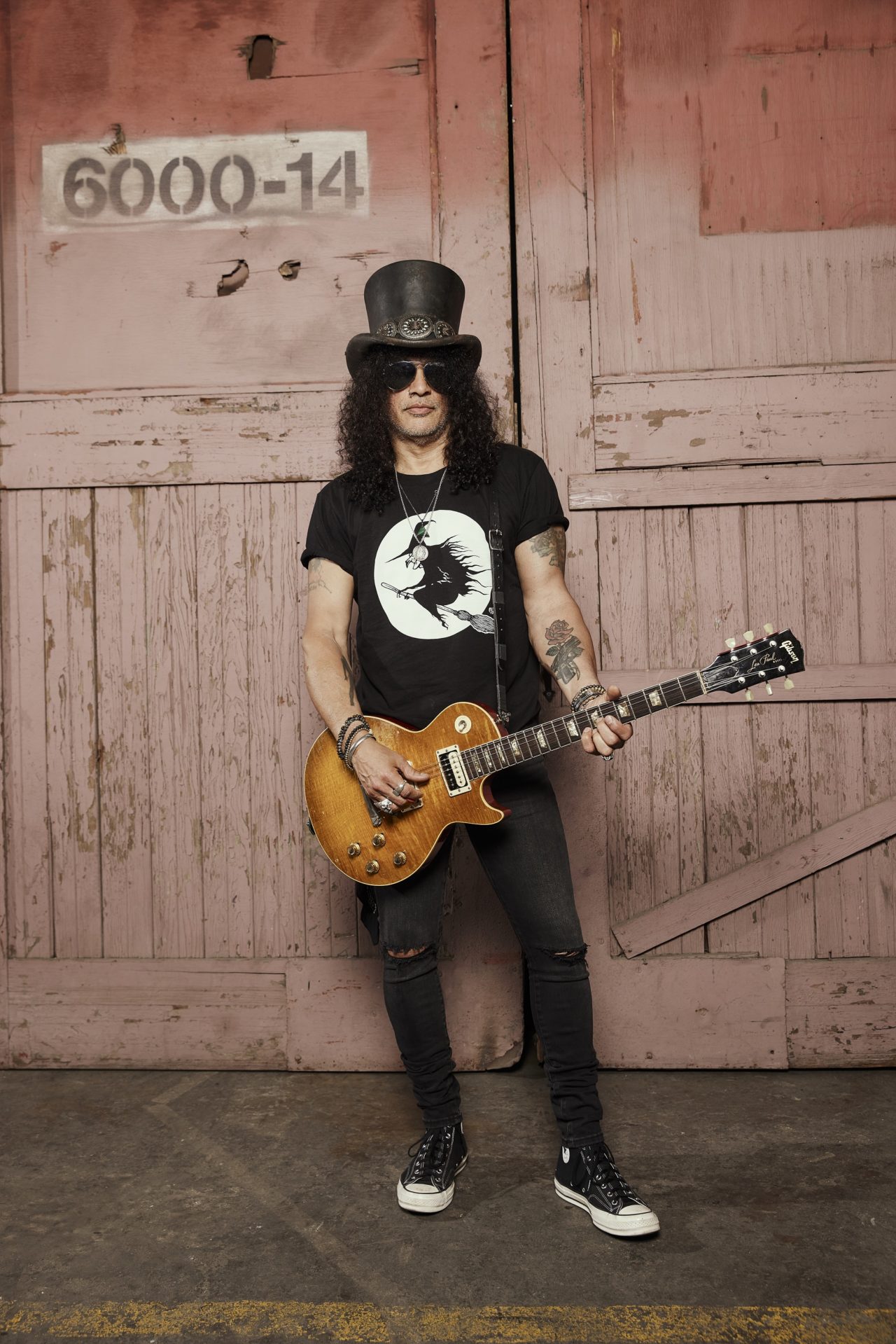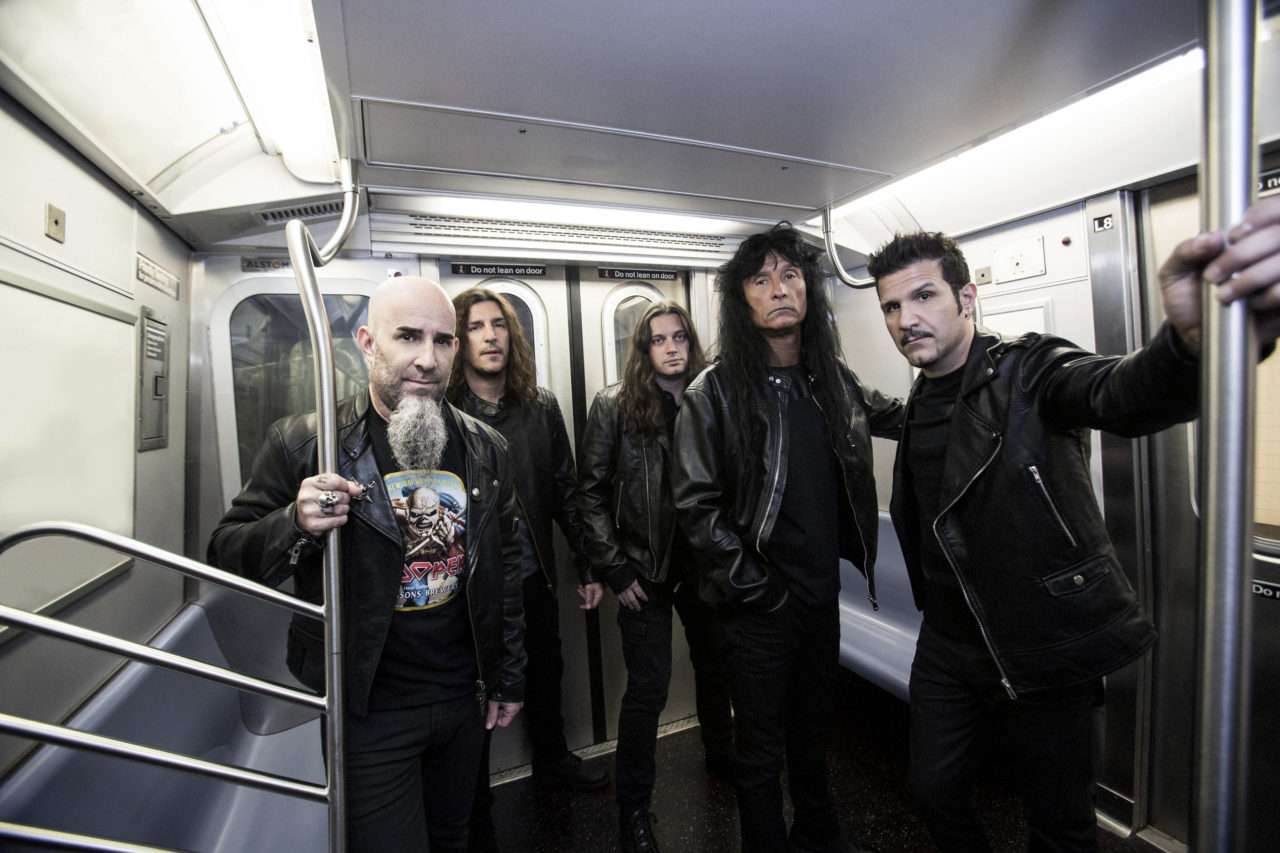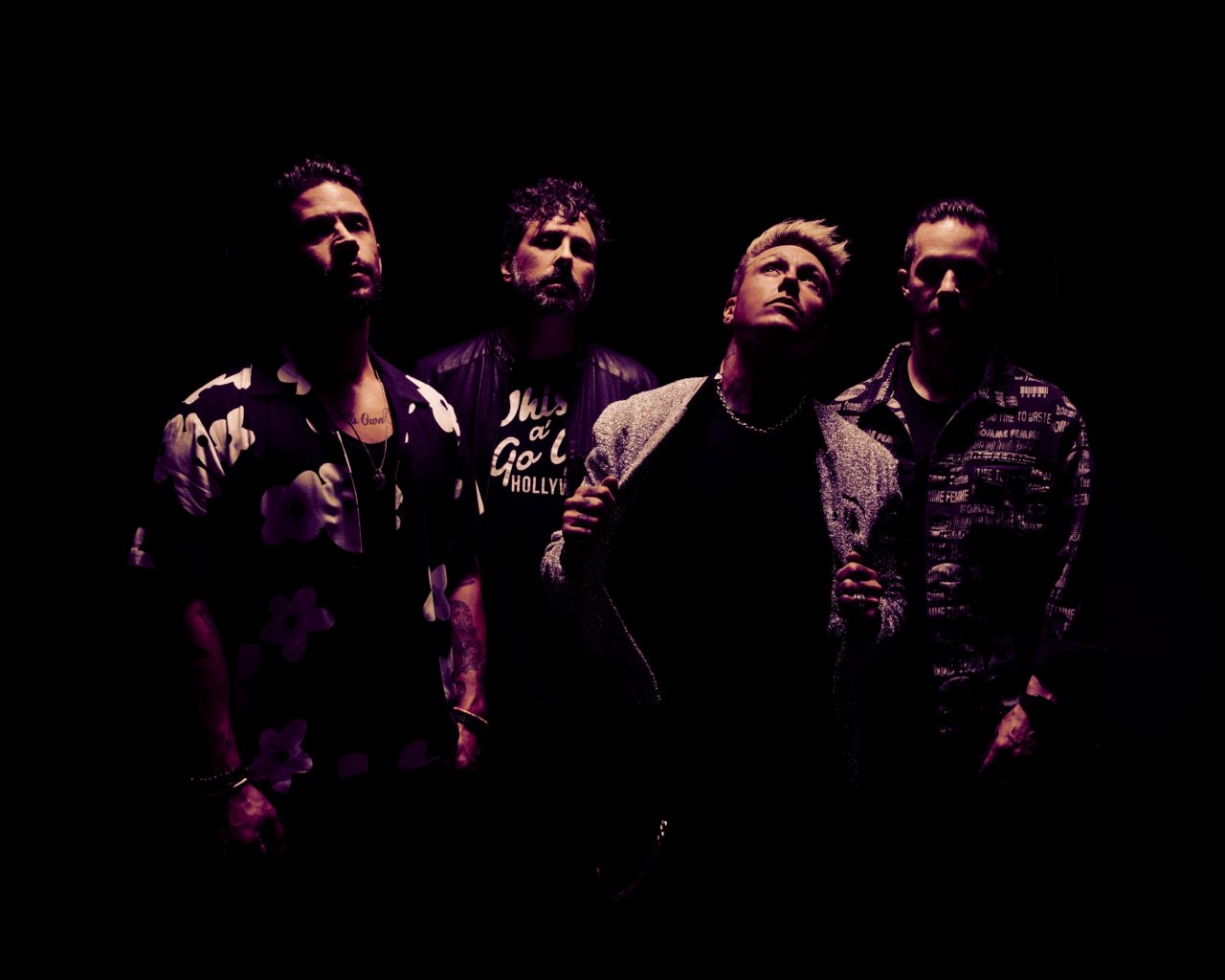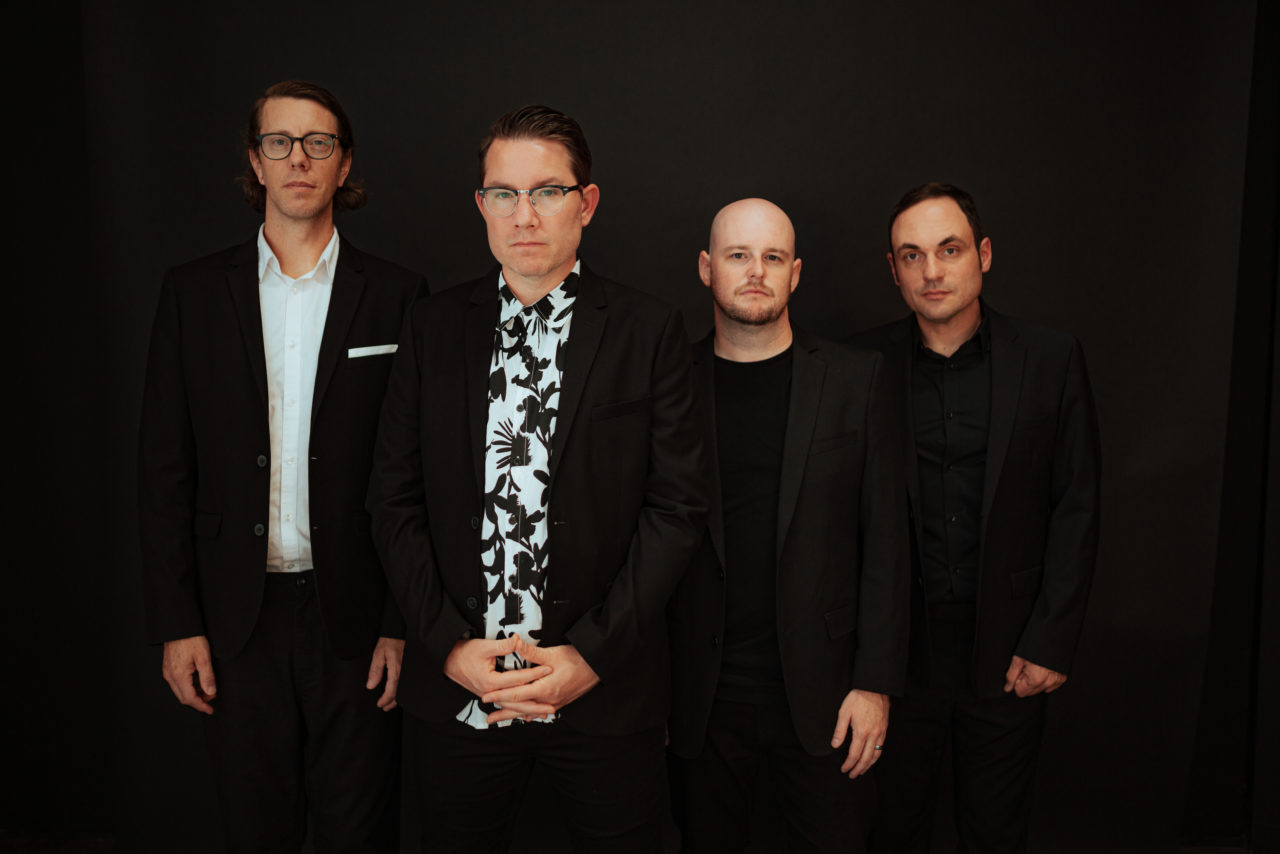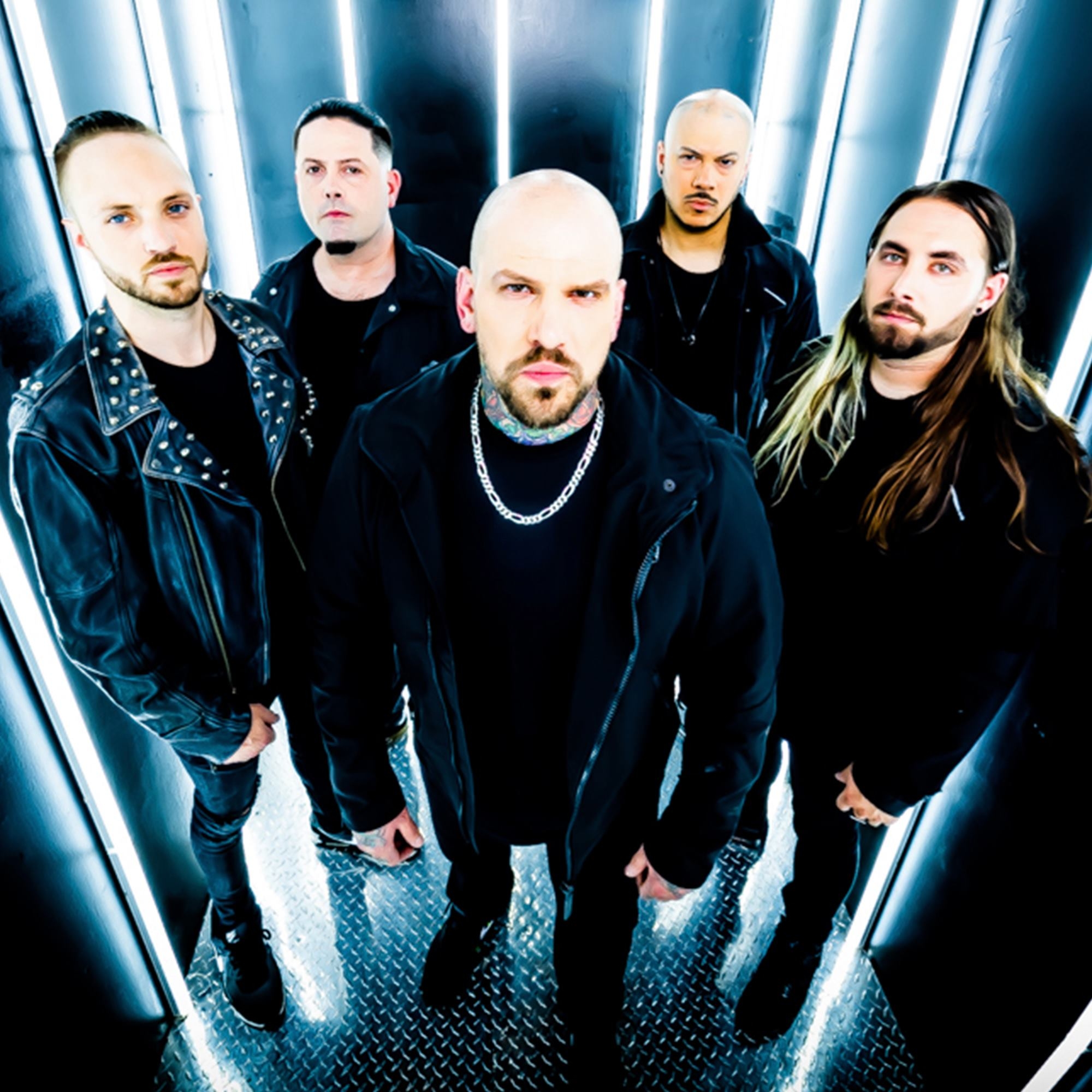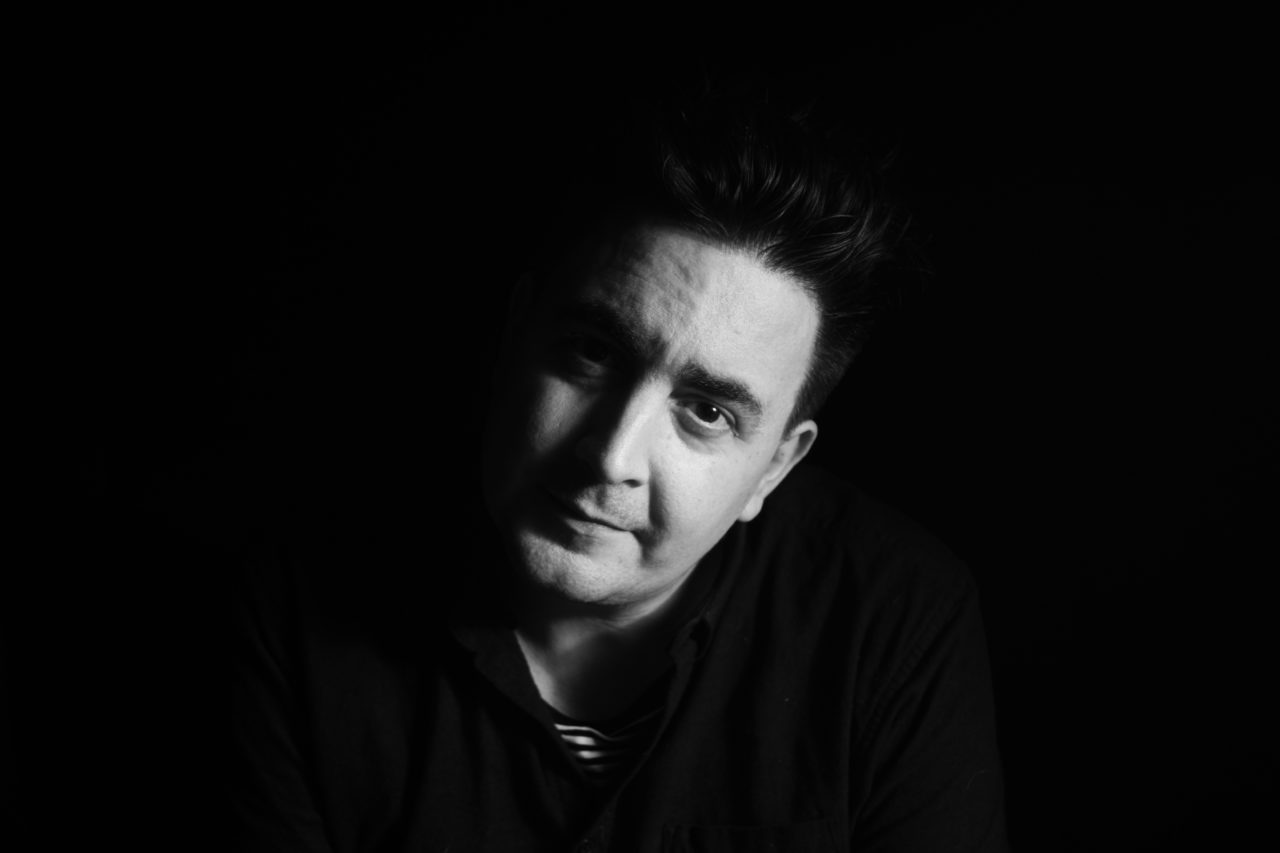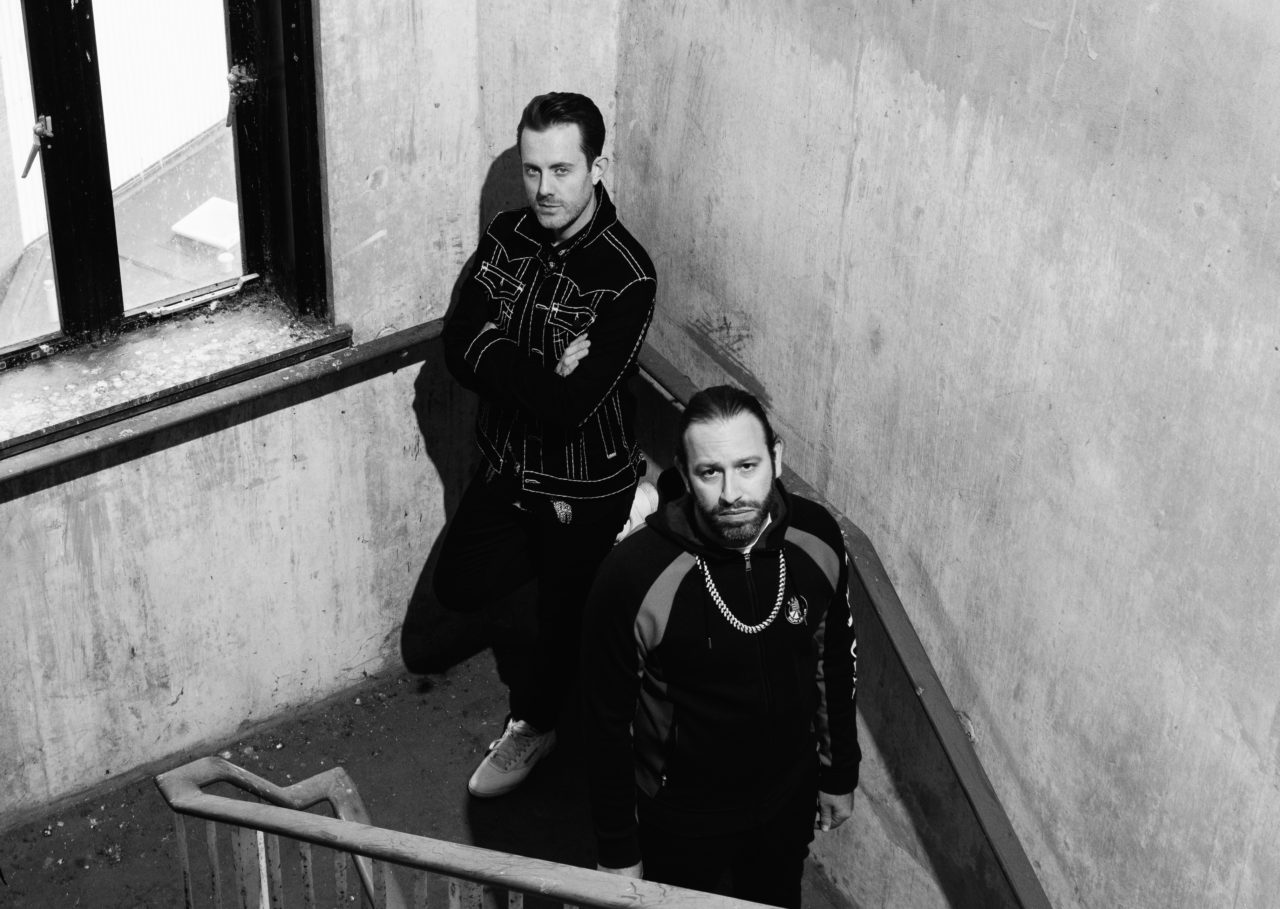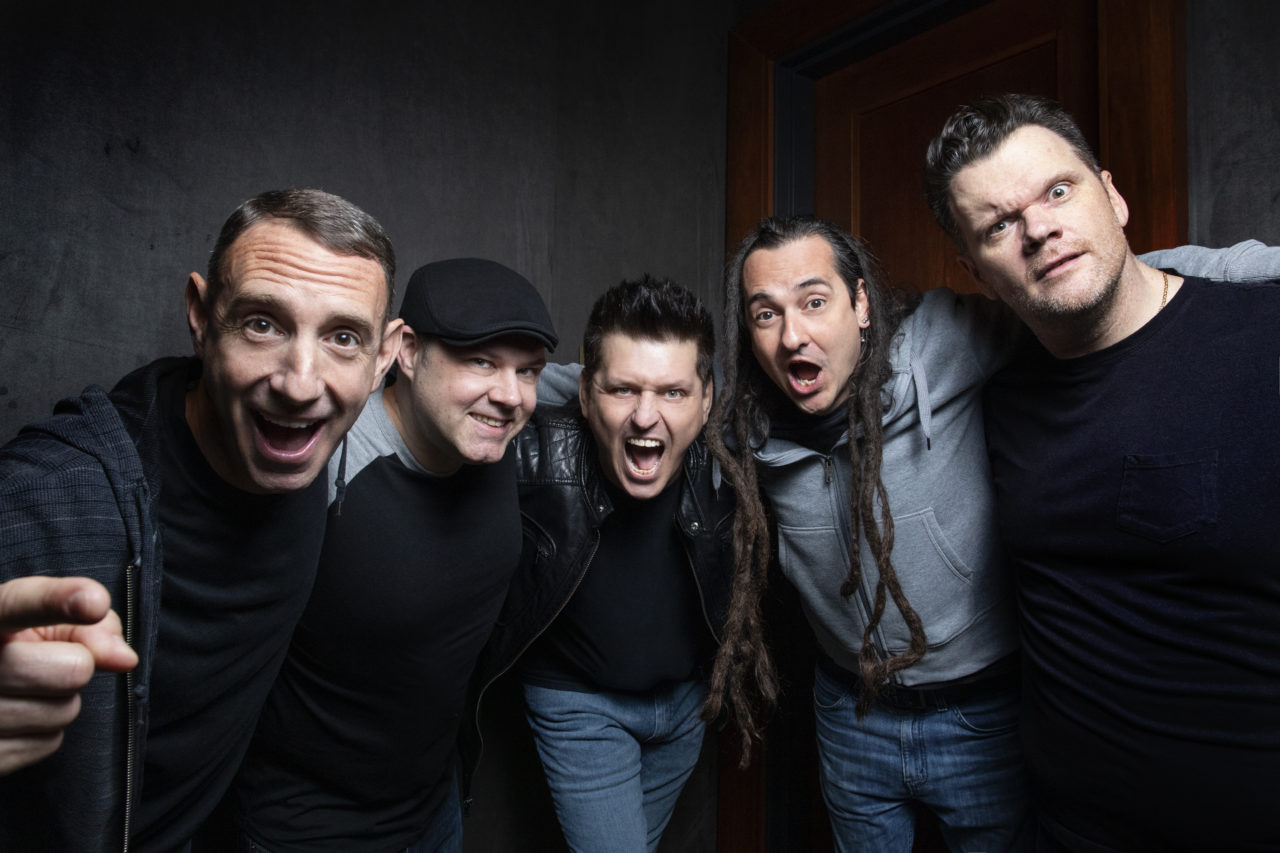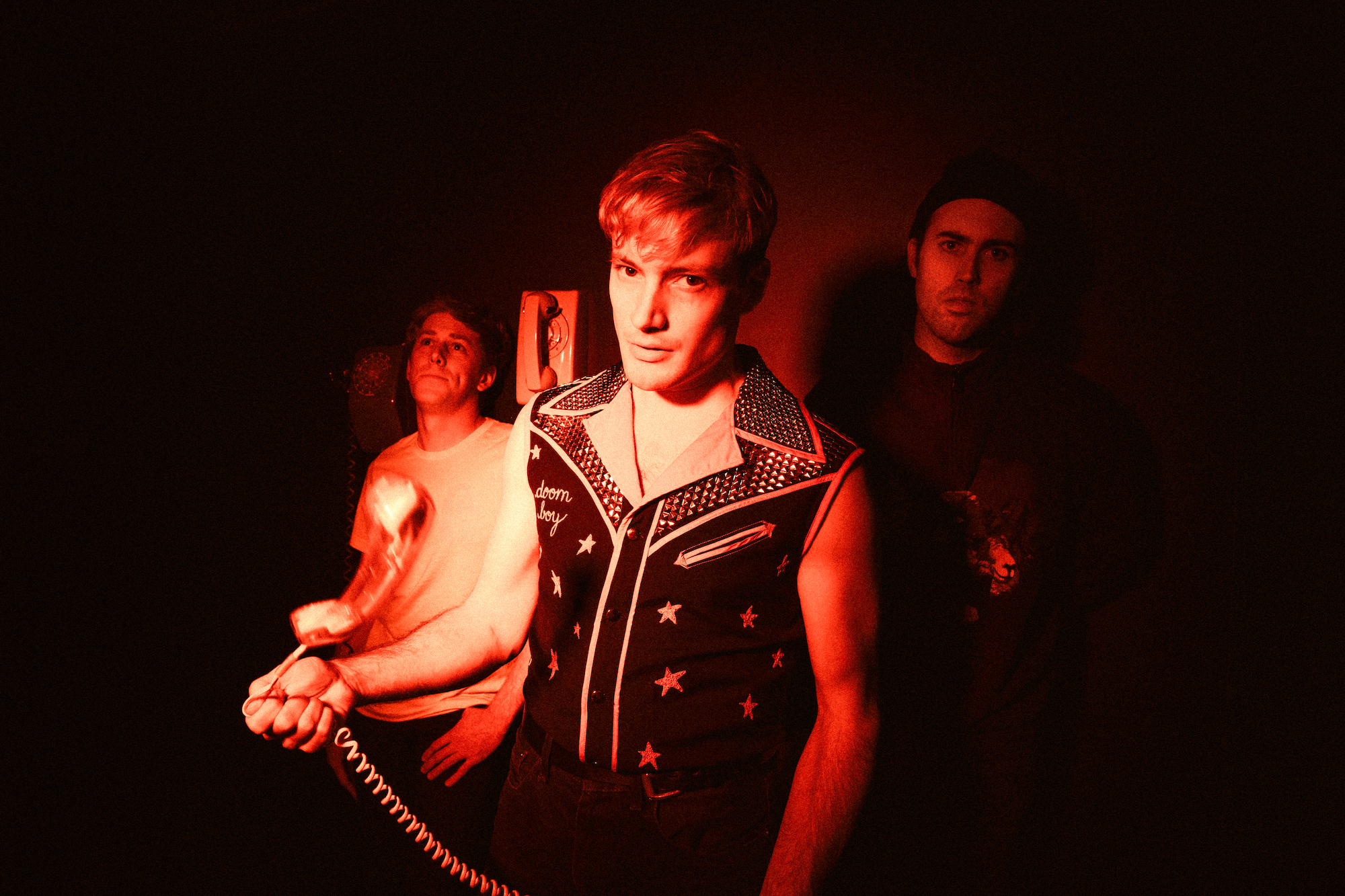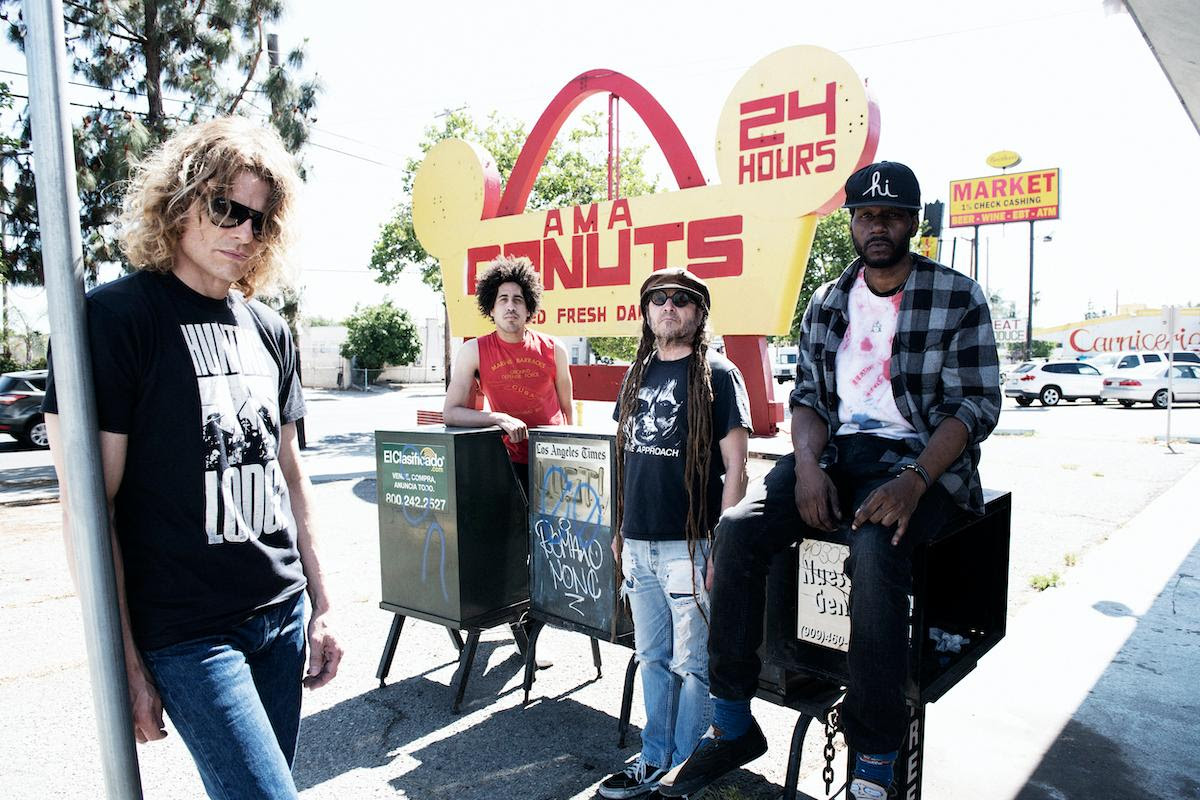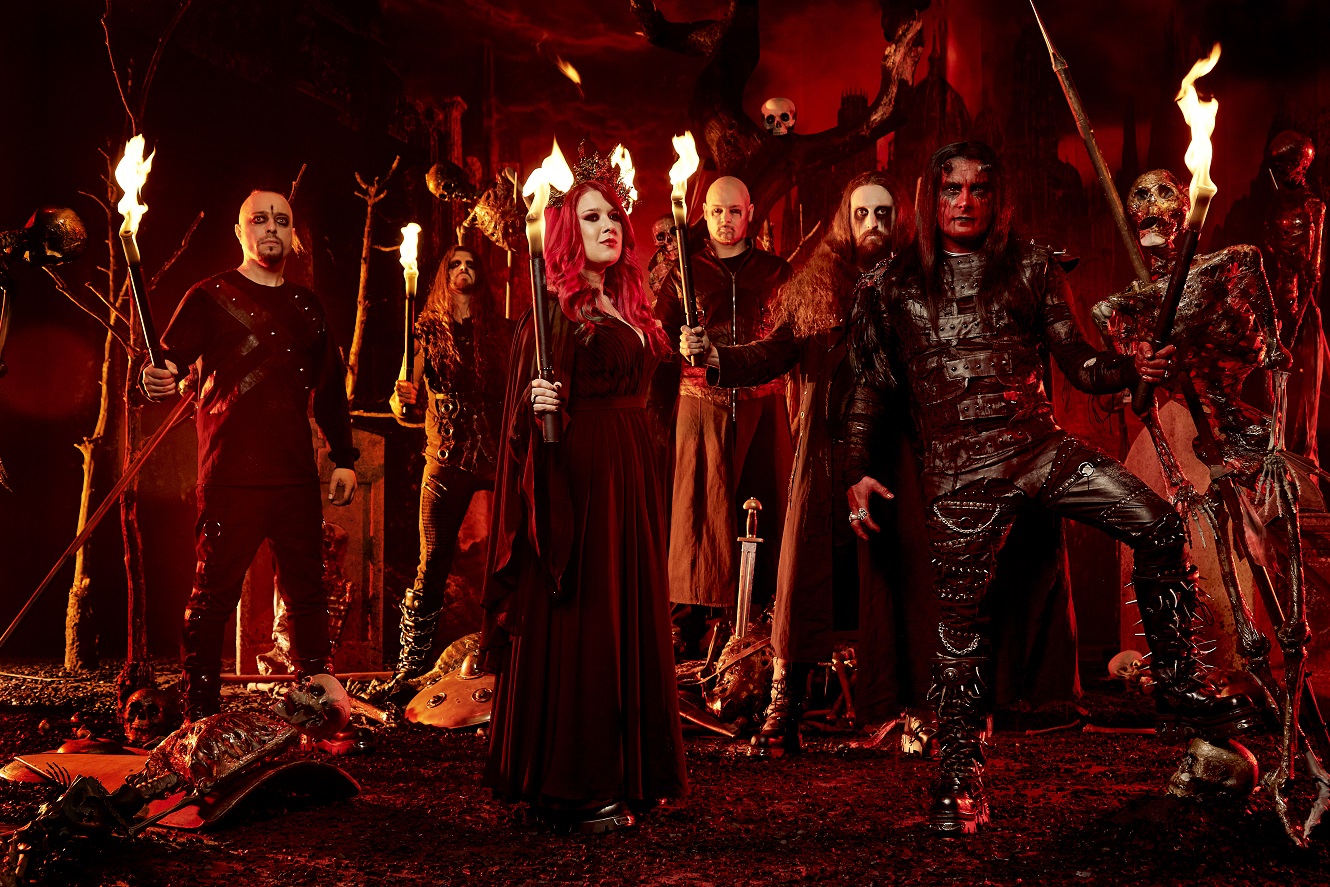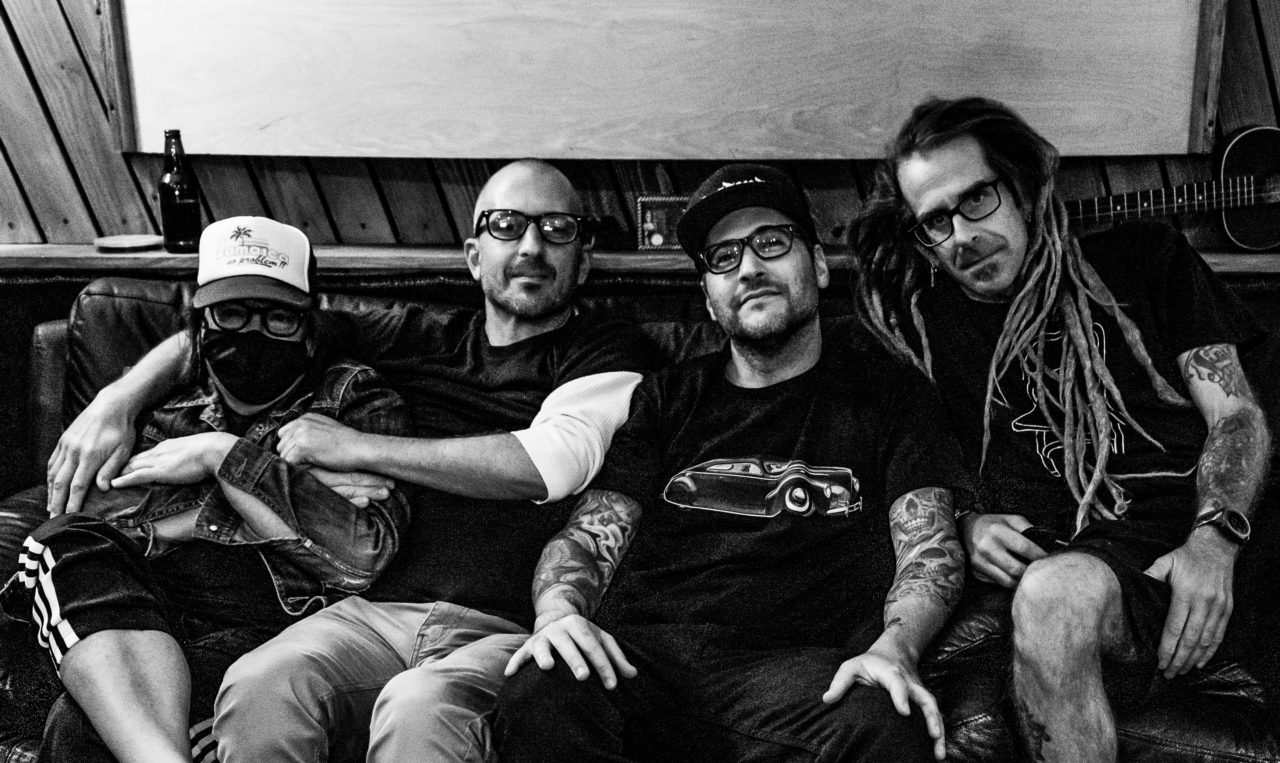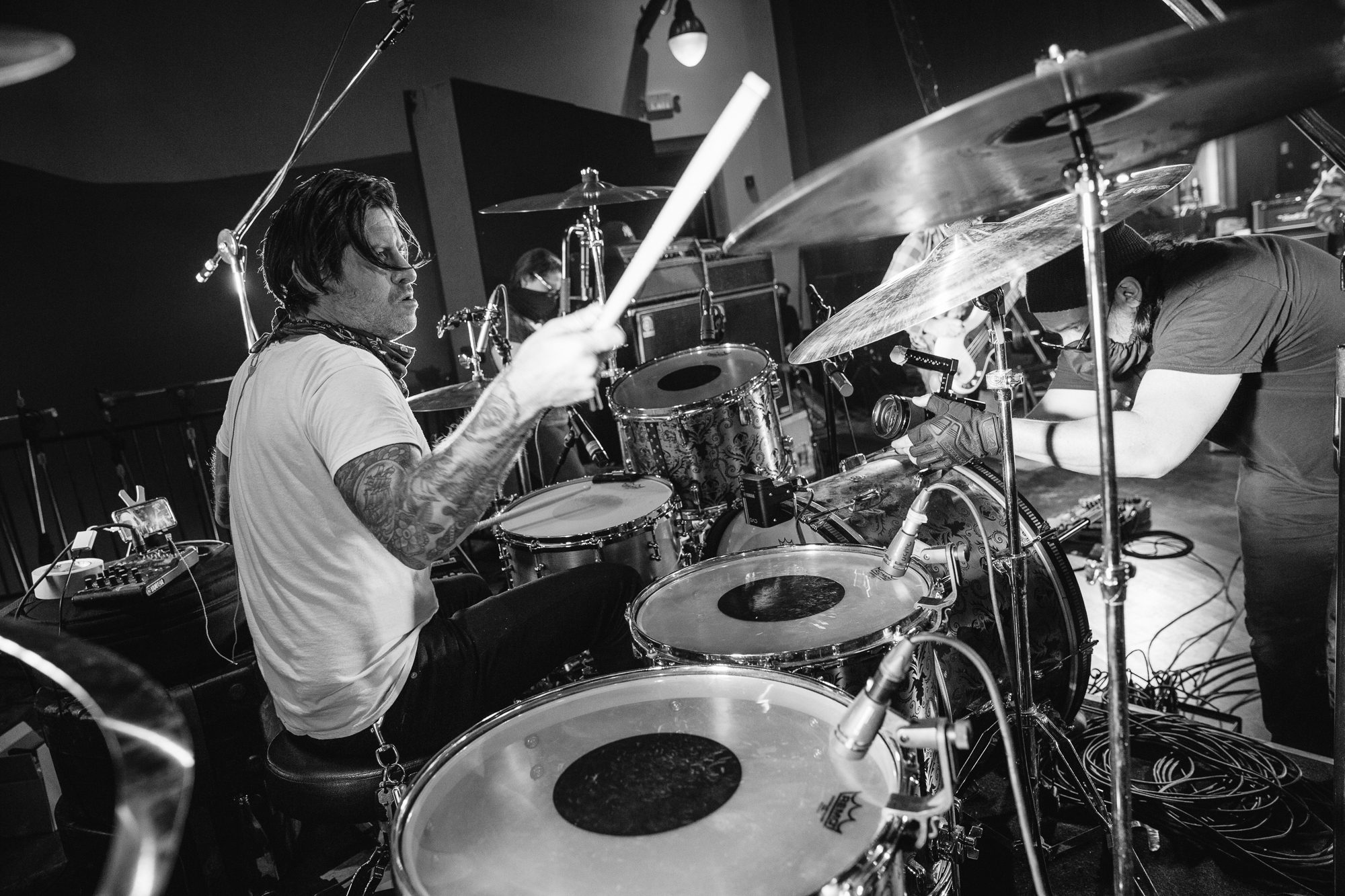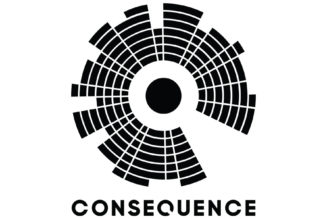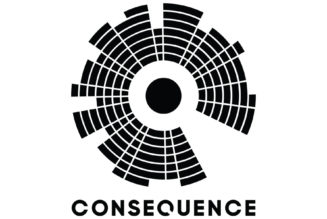These days, Metallica’s self-titled fifth LP (aka the Black Album) is hailed as a bona fide classic. Quite admirable, considering how upon its 1991 release date, diehard fans spread buyer’s remorse faster than COVID. In this writer’s tenure as a surly clerk for a mall-based record-store chain, he remembers the true believers complaining about everything from the shortened song lengths to James Hetfield’s lyrics to uber-producer Bob Rock’s framing of their heavy metal hellions. Back then, insufferable customers got their cash refunds while others continued to bitch like mad with the subtext that “maybe it would grow on me.”
Now 30 years and approximately 35 million sales later, the Black Album is downright canonical. Sure, the Bay Area thrash-metal mavericks were indeed architects (alongside the other members of the legendary “Big 4” metal cabal: Anthrax, Slayer and Megadeth) for erecting cathedrals in the name of violent, crushing rock. Metallica certainly helped load the 174-bpm nail gun that affixed the coffin lid on hair-farming glam-metal. But you could see why fans expecting More Justice for All… were confused by Metallica’s concise attacks: songs that traded light-speed ferocity for menacing girth and crunch. Clearly, the band’s visions and dreams were larger than what the tape-trading metal underground could ever support.
Put the sales accolades and touring history on the back burner for a second and consider the real heat emanating off the band. The Black Album was that crucial flashpoint where Metallica were no longer the dominion of the heavy metal community: They belonged to the world. Radio stations saw the response and adjusted their playlists. Suddenly, metal was being used in more than a couple mass-market commercials for everything from cars to caffeine-laden anything. Anthrax were featured on an episode of the hit TV comedy Married… With Children. We’re not throwing shade, we swear: You don’t see Five Finger Death Punch in court stopping Victoria’s Secret from attempting to name an eyeshadow after them. Avenged Sevenfold have never been summoned to Brian Eno’s studio. But Metallica aligned with Lou Reed for LULU, the last recorded document of one of underground/alternative rock’s patron saints. Metallica shed their underground battle jackets (and Young Ones tees) for the greater fabric of popular culture.
In an effort to convey the dizzying scope of the band’s influence, SPIN asked 30 artists testifying to both Metallica and Metallica as a fulcrum for their own sonic raison d’etres. That scope features everyone from genuine legends to hip-hop notables to ska bands to classical pianists to militant Asian feminists. Some of these performers appear on The Blacklist, a compilation of 53 artists interpreting tracks from the classic album, now available with a newly remastered version of the original LP. However you feel about it, owning a copy of the Black Album feels like a rite of cultural passage alongside your first beer, car and psychic headbutt with an authority figure.
Slash, Guns N’ Roses, Slash Featuring Myles Kennedy & The Conspirators
I think any Metallica album is a given for a hard rock/metal record collection. They are the pinnacle of that style of music, and they were among the first bands to revolutionize that particular style and sound. But the Black Album crossed over in a way that made them a household name and they achieved that while maintaining their sonic integrity, songwriting and attitude. They took their signature style and recorded an album that became universally accessible, but still fucking cool. That is no small feat and maybe something that artists like Metallica might not even want to do. But on this record, it happened for them. The legacy of the Black Album will live on forever.
Charlie Benante, Anthrax
Culturally, the Black Album was one that changed things at radio. This was a real heavy metal band, now getting played on the radio, and that opened doors for a lot of other bands to come and steal that sound. That was true, because, maybe a few years after the Black Album, there were a lot of other bands that came out to try and sound like [it]. Some of them had big hits. I also think the production on that album is really good: Bob Rock did an awesome job on that record. My favorite Bob Rock record, the one that I always go to, is Back in Black. I don’t know what it is about “black,” but it works. I think that record still sounds great.
I think that after Justice for All…, Metallica was trying to go to the next level and make a change. There’s such a drastic change in sound from In Justice to the Black Album. It’s very polished, and I think it was an effort by the band to change. And Bob Rock was brought in to make that change. He made that album sound like a new Metallica, and it really resonated with people. People who never knew who they were, now knew who they were, and they became household names.
Rodrigo Y Gabriela
Rodrigo Sanchez: I think it’s down to the songs. It’s just full of classics that stand up to repeat listening year after year. It was a great time for rock: The Black Album, Nevermind and Blood Sugar Sex Magik were all released within a few weeks of each other in 1991. The Black Album is like the monolith in Kubrick’s 2001: A Space Odyssey, this massive, iconic slab of darkness that you cannot help being drawn towards.
Gabriela Quintero: We were Metallica fans since hearing Master Of Puppets in the mid-’80s, and the band were a big influence on us as young musicians playing thrash metal in Mexico City. As a fan, you are always excited to hear what a band does next—you make that emotional investment. With the release of the Black Album, they changed their approach. There was more variety of tempo and it was more melodic. But they still sounded like the heaviest band in the world. As a fan, you went with them down this new road.
Jerry Horton, Papa Roach
The thing that makes an album transcend its time period is great songs. The metal fans hate [the Black Album] because it’s not metal, and that’s OK. Those fans already have four insanely epic metal albums before that they can listen to. Metallica’s decision to go more rock than metal made this album more accessible to many more people and helped cement them in the history of not just metal, but popular music. This album will always hold a special place in my heart, because it was on this cycle that I went to my first concert to see them at Oakland Coliseum. I had no phone, no camera, but I still remember it so vividly. Oh, and it was the first time I experienced what we call a “bangover.” Little did I know I’d get to share the stage with them one day…
Dave “Brownsound” Baksh, SUM 41
It’s the biggest metal record of all time. I can’t even think of a rock record in my lifetime that even sniffs the level of exposure and ubiquity that the Black Album hit in ’91 and for years and years after. It was everywhere, larger than life in every sense of the word—and rightfully so. It’s full of accessible stadium-rock anthems that were recorded to sound bigger and louder than anything else that would come out of your speakers. I don’t think we’ll ever see another rock record come anywhere near it.
Josie Cotton
As a power-pop spawn of Wanda Jackson and the Troggs, I must [state] that I am in no way qualified to be voicing an opinion on Metallica’s Black Album. What were you thinking, SPIN? Let it be known that I was in fact forbidden from ever entering the hallowed Viking halls of heavy metal. But I am a huge horror movie fan and the parallel aesthetic does not escape me. So maybe I am the right person. Otherwise it would be an embarrassing love-fest which I’m pretty sure is the exact opposite of what this band represents.
So I listened, from beginning to end and I have to say, the pure musicality, production and the lyrics on songs like “Enter Sandman” and “Sad But True” are simply epic. No way other way to describe them. “Nothing Else Matters” surprised me immensely… it’s undeniable.
I’m officially setting my funeral ship on fire to commemorate my conversion, with a caveat. Is the record at times corny beyond measure? No doubt. Is there some cultural foreshadowing going on here? Sure. But I can’t help but think there’s a tongue-in-cheek element happening here as well, taking itself to the full extreme of natural and unnatural law with its adorable “fangs of rage.”
JT Woodruff, Hawthorne Heights
I think it’s very important to have a full disclosure moment with y’all. I’m not a metalhead. I’ve never had long hair. I don’t even drink alcohol. That being said, the Black Album is one of the most important albums in my life. It had a profound effect on my transition from rap into rock music. The album cover was perfect. You stare into it, and it stares back at you. There is something mysterious about how black it really is.
The album from start to finish is the best the band has ever sounded, the perfect blend of snarling metal melody that just destroys the listener in every way. You don’t have to know what metal is to digest it and love it. And that is why it is so important, legendary and relevant to this day.
Scott McCloud, Paramount Styles/Girls Against Boys
My relationship with Metallica’s Black Album has been a bit love-hate. Part of the problem was that Alexis [Fleisig, drums] and Eli [Janney, synthesizer] used to crank it in the van while we were on tour, with always a bit of comedic drama and head-banging, which would trigger a reflex in me which manifested itself by me reaching over and ejecting the CD, cassette, whatever and immediately throwing it out the window. Subsequently they would secretly purchase new copies and the pattern would repeat itself. Somehow [the album] seemed too slick, too sonically digestible… and was also absolutely ubiquitous. It was everywhere, solidly rotating on MTV, in your face and the whole thing felt very commercialized and devoid of real danger, musically speaking.
In retrospect, it was just a sign of the times. A rather large sign of the times. Everything that had once seemed underground—secret in a way—was reaching the mainstream. It reminds of a time in NYC when I was going to the post office and everybody working there was rocking out to [Nirvana’s] “Come As You Are.” The music world was changing and parts of that felt bittersweet. In the end, Girls Against Boys would wind up on the Lollapalooza tour Metallica headlined. I’d be hearing those songs every day. And also realizing somewhat uncomfortably how the album had actually crept in as an influence on some of our own songs. Sweeping monumental changes have a way of getting under your skin and almost hiding there. Latent. Waiting to emerge.
1991 was the big year of crossover. Nevermind may represent the noise/punk side of that while the Black Album presented to the mainstream a metal makeover complete with a new look. Thirty years later, it stands out as something so very representative of the ’90s, it’s hard to think of that decade without it. I still don’t listen to it much, I don’t need to. It’s like I know every riff without having to hear it again. But I’ll put it on right now.
Paolo Gregoletto, Trivium
The Black Album is each member of Metallica playing to their strengths. The songwriting refused to deviate from that goal and ultimately it paid off. They took a leap of faith not many bands would dare to take or even have the skill to attempt. It has held up as the standard for a band trying to break beyond the confines of the genre that made them. I think there is a good reason so many bands, media, and fans call other artist’s albums their Black Album.
Ben Thatcher, Royal Blood
It really brought heavy music to the masses. There are so many people my age that got into metal through the Black Album, even though we would have only heard it 10 years or more after it came out. A hell of a lot of musicians playing these days probably wouldn’t be if it wasn’t for that album. I first heard it when I was quite young. It inspired me to play the drums in a way to serve the songs. Keep it simple and solid, and not overplay. Lars [Ulrich] is a pioneer in drumming.
Doc Coyle, Bad Wolves
I think it comes down to two things: songs and sonics. It’s a level of universally appealing songwriting that Metallica has never achieved before or after. It’s an authentically metal album that even non-metal fan listeners can comprehend as being undeniably good. And from a tonal and production standpoint, it’s still the benchmark for all heavy albums. James [Hetfield’s] voice never sounded better. Kirk [Hammett’s] solos are the most iconic he’s written. The drum sounds are the biggest I can think of and we get actual low-end through Jason [Newsted’s] bass playing. It’s the ultimate standard by which all metal albums are measured.
It’s the most personally formative album in my life. Even though I think Master of Puppets is the best metal album ever made, the Black Album is the most important metal album. Subjectively for me, but objectively for the culture. It inspires thousands of people to buy the album every week to this day. Its simplicity and relatability influence young people—who weren’t even alive in 1991—every day to pick up instruments and yearn to make that heavy, crunchy, beautiful noise. [The Black Album] is why I am here 30 years later with a career as a metal musician and continues to be the lifeblood of future generations of headbangers.
Eddie Argos, Art Brut
The Black Album sounds like 12 magic spells—it’s totally enchanting. It doesn’t really sound like anything else: Not even Metallica if their own old grumpy fans are to be believed. It’s undeniably brilliant. Even after Britpop came along and steamrolled every stereo at a teenage party in the UK into Blur and Oasis and Pulp, somehow the Black Album remained. Its magic power maintained its grip between Suede and Supergrass, late at night, on CD players in kitchens where parents have gone away for the weekend, up and down the country.
It’s the record that made me a Metallica fan. I’m a completist and had to hear the earlier albums. It’s how I became friends with Ian Catskilkin from Art Brut. So no Metallica, no Art Brut. We’ve woven some Metallica into our band, too. We often come onstage playing the riff from “Enter Sandman,” and even have lawsuit-baiting “Masters Of Pop Hits” t-shirts. Man, I love Metallica.
The Hu
The Black Album was truly iconic. We used to listen to the album in Mongolia just like millions of others around the world. The music and energy of the songs transcends time and generations of listeners. We grew up listening to the Black Album so that influenced our taste in music as artists. Still today, we enjoy and jam out to the songs, so we were really honored to be part of The Blacklist.
Michael Poulsen, Volbeat
There’s such an overwhelming dynamic confidence in the sound of the Black Album that at any specific time, it will blow you away. But maybe it is also because Bob Rock knew what he was about to do when he heard the quality in the songs and the signature sound that was already there in their playing, and Metallica didn’t. I mean, they didn’t hear or look at it the same way with the same ears or glasses until Bob showed them what each member had the potential to do.
Igor Levit, classical pianist
Like with every great, essential piece of art or music: [The Black Album] remains and always will remain timeless. The music, the lyrics—they speak to everyone everywhere and every moment. This is what makes this music and this album essential.
I’m a guitar person; I always wanted to play the guitar. I never could. And so I encountered Metallica when I was very young because of Kirk Hammett. So just that alone makes this group of musicians so important to me. It’s the guitar playing. It’s not just the Black Album. I mean, The Black Album is a masterpiece, but the band means a lot to me.
Matthan Minister, Cage The Elephant
The Black Album was the first Metallica record I’d ever heard. It was also the first metal music I had heard, first shown to me by my younger brother Noah in 1994 when I was 14. I was captivated by the heavy, dark tone of the music and lyrics. I felt there was a bridge between this music and classical music, which I loved. As a young guitar player, this album opened the door for itself, as well as the previous four Metallica records, as a “main course of study,” so to speak. I spent the next two or three years listening exclusively to Metallica, trying to learn every song on guitar and vocals. I have hours of VHS tapes of my buddy Greg and I putting on Metallica concerts in my bedroom with a tripod and my mother’s camera, so we could then watch them back and see what needed improvement. So, yeah. I’d say the Black Album had a pretty big impact on my life direction!
J Balvin
The Black Album is just iconic. I remember being struck by it: the visual presentation, the now-legendary songs and the infamous live shows after its release. Metallica was an early musical favorite of mine, even from a young age, so seeing them perfect the sound they had been building for a decade with this album was an inspiration to me and drove me to keep pushing my own sound further as I began establishing myself musically.
Chase and Status
The Black Album sounded fresh and exciting when it was released and was certainly a vessel for many to discover Metallica’s previous work and to become lifelong fans. The varying tempos and great production makes the album feel like a journey and it still sounds current today. It became a benchmark of how a great album should sound. For ourselves, the album has been very influential, be it the sonics and vibe of “Enter Sandman,” the progression of “Nothing Else Matters” and even the fact that we sampled “Wherever I May Roam” in 2009 for our song “Saxon” (which features on Rhianna’s Talk That Talk album under “Red Lipstick”). It’s a real honor to have been asked to cover a track for The Blacklist and to be synonymous with the record.
Roger Lima, Less Than Jake
I was just 17 years old when the Black Album was released. I had been a fan of Metallica for quite some time, learning Master of Puppets riffs on guitar was my Zen. I got And Justice for All… on release day. I knew [the Black Album] was coming. I got the record at midnight—I stood in line at Peaches Records. Everyone knew “Enter Sandman” by that point and loved it. But when I heard “Sad But True,” I realized this was different. This was up a notch. It had a bigness to it, not just the sounds, but the songs, too. They were made to be rocked on a huge stage. I didn’t listen to anything else for months. “Wherever I May Roam” is the song that I have to blast whenever I hear it—I feel that song so deeply. Probably one of my favorite albums of all time, sonically speaking, and has always influenced my attention to detail in the studio, especially with my own bands.
Luke Bentham, The Dirty Nil
The Black Album stands today as one of the few examples of a band who swung for the fences, risking everything that they had painstakingly accrued, to deliver one of the most powerful sounding recordings of all time. Although vilified and lampooned in the wake of the Some Kind Of Monster documentary, Bob Rock was clearly instrumental in the ultimate success of the record, focusing the band’s sound and challenging them individually to create parts that defied their thrash-metal roots, opting instead for an ambitious hi-fi intensity never before achieved or since. Listening to the album on CD as a kid was an exhilarating ride: The drums on “Enter Sandman” made me feel as though a motorcycle was revving beneath me—and they still do. James never sang better and Kirk’s solos were never more heroically purposeful. Furthermore, Jason Newsted was finally highlighted as the incredible bass player he is. Metallica has many excellent records, but it truly all came together on the Black Album.
Keith Morris, OFF!/Circle Jerks
The Black Album contains “And Nothing Else Matters,” which went through the ceiling all the way to Mars and to this day has hundreds of thousands of couples getting hot and bothered in the backseats of cars in parking lots, cornfields and potato farms across North America. Metallica went with a slower and heavier sound versus the “thrash” that was what all of their original fans expected of them, losing a few followers but adding to their listenership. As for the album’s resonance all these years later, it’s because the “hits” on that album are staples on radio and really appreciated by zillions of music fans.
I am a fan of Metallica’s earliest recordings along with Slayer and some other thrash bands. My take is they jumped from one musical genre or box and went to a different place. Maybe their thought process was that they needed a change of pace? They wanted to try something new. My thought towards personal artistic mythology regarding them is that I’m not blown away by all of the songs, but when they’re good they are really good!
Dani Filth, Cradle of Filth
Delivering a much-needed “thwump!” to the production values of heavy metal in general and keeping the genre alive in a time when everyone was jumping on the Seattle haywagon, this album actually came out the year Cradle Of Filth was born. And masses of good memories surround it.
I remember at the time thinking first off the bat, that the Black Album was a pretty lousy thrash album. But, in awe of the production—which made its predecessor And Justice for All… sound positively anorexic—I persevered and the next night drinking with my metal crew ‘round a campfire on the hill above our village, I just totally got it. Metallica had created a heavy-metal milestone by doing everything right, right at the right time. From the massive production to the simple and effective song structures, the strong tunes through to lyrics everyone could identify with (no Lovecraftian horrors loping here), they nailed it with a 10-ton hammer.
Plus they looked cool.
From here on in, they were a stadium band and honestly, much credit to them for it.
Now about St. Anger…
Riley Breckenridge, Thrice
It’s the biggest metal record of all-time. I can’t even think of a rock record in my lifetime that even sniffs the level of exposure and ubiquity that the Black Album hit in ’91—and for years and years after. It was everywhere, larger than life in every sense of the word and rightfully so. It’s full of accessible stadium-rock anthems that were recorded to sound bigger and louder than anything else that would come out of your speakers, and I don’t think we’ll ever see another rock record come anywhere near it.
Jared James Nichols
Earth-shattering, musically defying and heavy as hell. Few albums have changed the world like the Black Album has. Although 30 years have passed since its inception, this record has not only stood the test of time, it has crushed it. Every word, every riff, every single aspect of this record defines badass. I’ll never forget the first time I heard the intro to “Enter Sandman” as a seven-year-old kid. I didn’t know what I was hearing, but my connection to this music was instant and forever. Older generations had Elvis, the Beatles or Led Zeppelin: I had Metallica. These songs started my love affair with guitar and heavy music. Not only were the first riffs I ever learned off of the Black Album, they are some of the greatest riffs ever written. Now, let us raise a toast and cheers to this musical masterpiece!
Chuck Doom, Saudade/Crosses
I remember the first time I heard “Nothing Else Matters.” The video came on MTV and the intro with the visuals of the band in the studio immediately caught my attention. Then when the beat dropped and Jason [Newsted] was playing a fretless, I was like “Yahmon.” After a couple bars of [James Hetfield’s] vocal, I said to myself, “I believe him.”
Voice of Baceprot (VOB)
Metallica’s Black Album further reinforced our belief that loud, heavy music can also carry an idealism about freedom and independence. Songs such as “Sad But True,” “Enter Sandman,” “Holier Than Thou,” “Don’t Tread On Me” and “Wherever I May Roam” made us enjoy heavy metal for what it is, not simply because it has Metallica’s name on it.
Frank Iero, Future Violents/My Chemical Romance
I was about to turn 10 when the Black Album came out. I had heard “Enter Sandman” on the radio, but I wanted to hear more. Later that year, I was invited to a popular girl’s birthday party and heard her brother had a copy of the Black Album in his room. My friend and I snuck it out and put it on as loud as we could. The girl’s mother came running in the room to tell us we had to turn it off. That was when I knew I had to have this record.
Tucker Rule, Thursday
I was 13, a budding hardcore kid and skateboarder, so the Black Album really spoke to me when it came out. I liked all the other Metallica records, too. I love Ride the Lightning, and of course, who didn’t like And Justice for All…? I mean, let’s be honest. [The Black Album] just sounded so good, and it was what got me interested in the drums. The snare drum on that record just sounds unbelievable. I didn’t end up playing drums until I was 18: It was a good five years after I heard this record. But this is the record that introduced me to listening to the drums more than the casual listener.
I just think that, when you’re a 13-year-old kid and you’re into skateboarding and hardcore and metal, what is cooler than something called the Black Album and the cover being black and the riffs being mean?
KK Downing, Judas Priest
I think every band have had hallmark albums throughout their careers—not to say that the others are not credible and great as well, some of them just jumped out and they’re just undeniable. I would certainly say that the Black Album is not something that you can “make” happen. It automatically happens because everybody is just drawn to it and love it.
It’s a collection of songs and great melodies that’s undeniable. That’s the album people look to for their interpretations or renditions. Like if an orchestra wants to do a song or a fan on YouTube wants to do an interpretation with a strange instrument or a piano version. These wonderful melodies lend themselves from this album, and then the songs become even more famous because of all of these interpretations from people all over the world in all of these different countries. With so many great melodies and all of these great songs, that is going to automatically make this album stand out in the catalog of Metallica.
I think it took the diehard fans a bit to acclimatize the fact that [the album] wasn’t that rawness they were used to. But with the test of time, when they’ve seen the band play these songs many times, it fits right in with the early songs.
Ben Weinman, The Dillinger Escape Plan/Suicidal Tendencies
I think the Black Album was definitely a lesson in how to make melody over crushingly heavy riffs. Before that, Mike Patton was pretty much the guy who took melody over heavy music. But Metallica made massively produced, crushingly heavy riffs with melodic content that was memorable and catchy. The guitar solos were all super-memorable and musical. Every single one of them you could sing, you remembered the whole melody. That’s something that’s pretty rare.
You can say that the Black Album made Metallica popular culture, but they moved popular culture a little more into heavy music. There’s always this middle ground: Some old fans leave, some stay and because they cross over, new fans discover the old stuff and replace the fans that left. Maybe they’ll find out about other heavy stuff because before that, they were just radio music listeners. Dillinger got that quite a bit since we had played with System of a Down and Slipknot. [Listeners] would learn about us through that and then go down the rabbit hole and all of a sudden they’re like deeply immersed in underground hardcore and metal. It’s a reverse gateway drug. Metallica are one of the biggest bands in the world. On any given night on tour, there’s a stadium full of people singing [breaks into Hetfield imitation] “harvester of sar-roooooe.” There’s no way that many people would know those old songs unless the Black Album converted them into catalog fans.
I remember that time though. Metal fans were on one side. You were either on the Metallica/Anthrax/Megadeth side or you’re on the Motley Crue/Poison side of things. But [Metallica] got Bob Rock [to produce] because he did that Motley Crue record, Dr. Feelgood. Which is awesome: They got the guy who recorded “the enemy” and made the biggest album of their lives.
